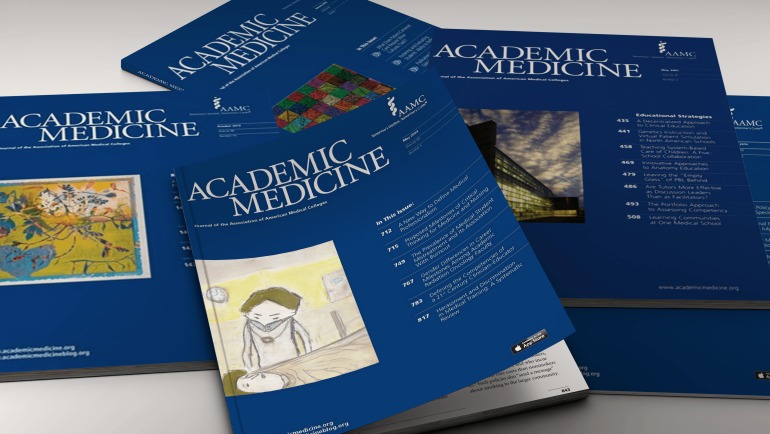
DETROIT – A trio of educators at Wayne State University in Detroit, including President M. Roy Wilson, propose a new approach to using academic health centers to heal society’s most vulnerable patients seeking care in the United States health care system.
The new model would expand on the traditional mission of education, research and clinical care to include a fourth mission of social accountability. Through this fourth mission, comprehensive community engagement can be undertaken, addressing the social determinants of health and measuring the health impact of interventions by using a deliberate structure and process, yielding defined outcomes for the betterment of society.
In “Socially Accountable Academic Health Centers: Pursuing a Quadripartite Mission,” published in the journal Academic Medicine, President Wilson; School of Medicine Vice Dean of Medical Education Richard Baker, M.D.; and School of Medicine Vice Dean of Diversity and Community Affairs Herbert Smitherman, M.D., M.P.H., F.A.C.P., outline why and how the fourth mission could be added to the traditional academic health center model for patient care.
Academic Medicine is the journal of the Association of American Medical Colleges. Academic health centers, or AHCs, play a leading role in educating the U.S., medical workforce, generating new biomedical knowledge and providing tertiary and quaternary clinical care. Yet the health status of the U.S. population lags behind that of nearly every other developed world economy, Dr. Smitherman said.
The article attempts to lay out a more systematic and organized approach to the coordination of the academic missions to enhance population health impact and U.S. health status improvement.
AHCs enjoy broad public support and have both an opportunity and an obligation to take the lead in improving the nation’s health through a fundamental reengineering of the health delivery system to address these social determinants of health more explicitly and systematically.
“The main reason is that the U.S. health care delivery system is not organized to address the major driver of poor health status, that is, the social determinants of health. Academic health centers such as Wayne State University/Detroit Medical Center, defined as ‘academic institutions that include a medical school, one or more additional health professional schools or programs, and an owned or affiliated hospital/health system,’ represent only 3 percent of hospitals in the U.S. However, AHCs provide 33 percent to 40 percent of the care of the uninsured; graduate 22,000 medical students each year; generate a significant amount of the U.S. research production; and are responsible for 60 percent of all U.S. residency programs,” Smitherman said. “These institutions thus have both a major impact on the health of our nation and therefore a significant responsibility for its betterment.”
The article expands on the 100-year-old tripartite academic model of research, education and clinical care, transforming it to a 21st century model that better addresses the current major causes of poor health status in our country.
The AHC’s tripartite mission, which has served the country so well in the past, is no longer sufficient to position AHCs to lead and resolve the intractable drivers of poor U.S. health status such as unfair and unjust health disparities, health inequities or the population’s social determinants of health.
The School of Medicine is a two-time finalist of the AAMC’s Spencer Foreman Award for Outstanding Community Service, with a commitment to health and service since its founding by five Civil War era doctors in 1868. Students and faculty routinely collaborate with local health care systems and community partners to find innovative ways to reduce health disparities, and improve and save residents’ lives.
More than 500 medical students annually serve at more than 70 clinical and outreach locations in the greater Detroit area through a curriculum unparalleled in size, opportunity and scope. Service sites include the city’s Community Homeless Interprofessional Program Clinic at St. Paul Cathedral Church, Diabetes Education and Wellness Clinic within the SAY Detroit Family Health Clinic, and Robert R. Frank Free Clinic inside St. Mercy Primary Care, and in shelters beyond the city, through Project H and Street Medicine Detroit, or in homes, through the Interprofessional Team Home Visit Program that serves the metropolitan Detroit area.
